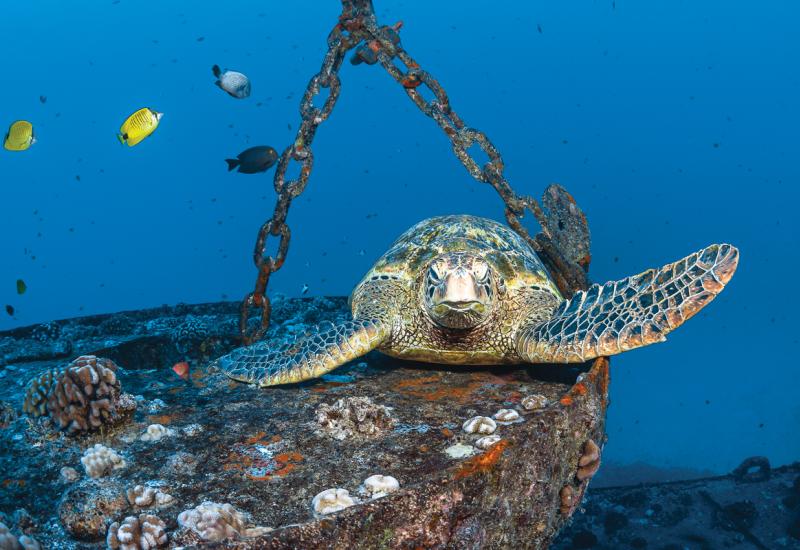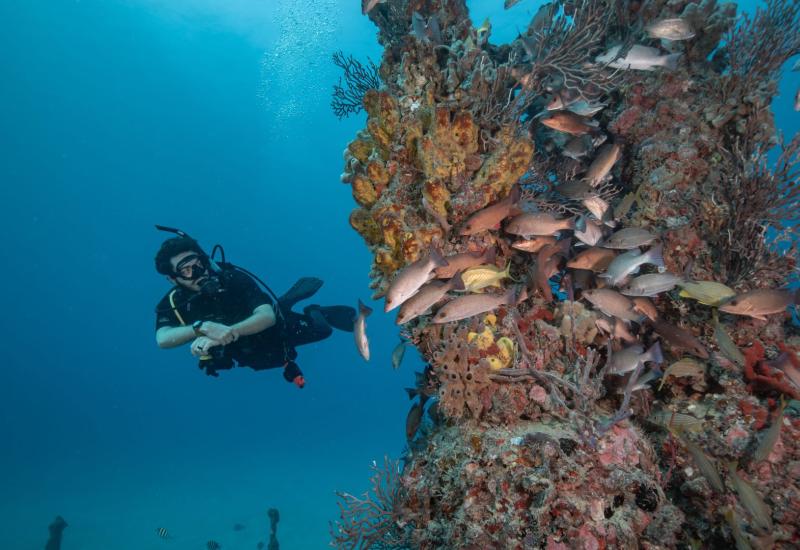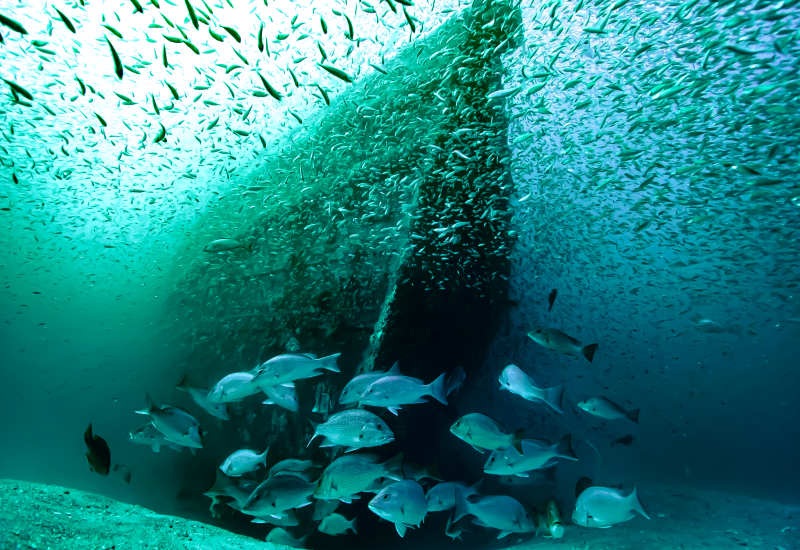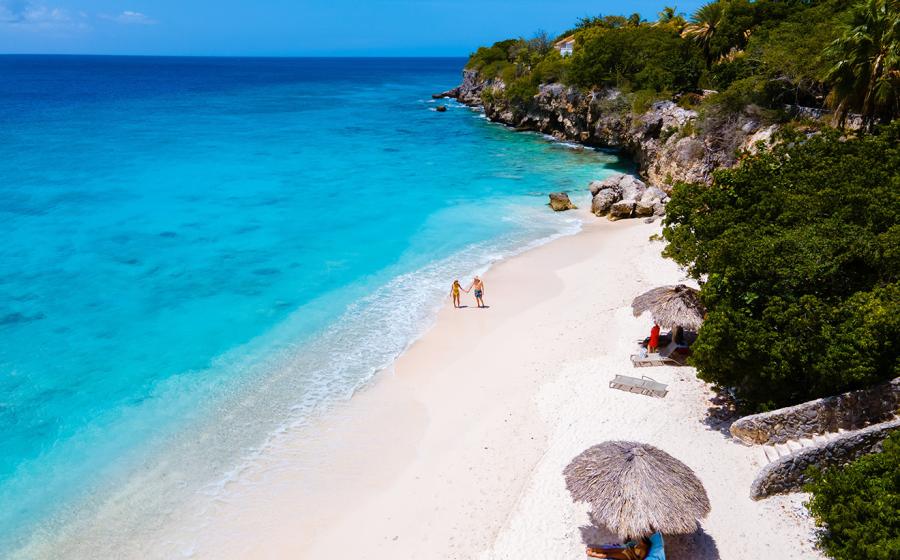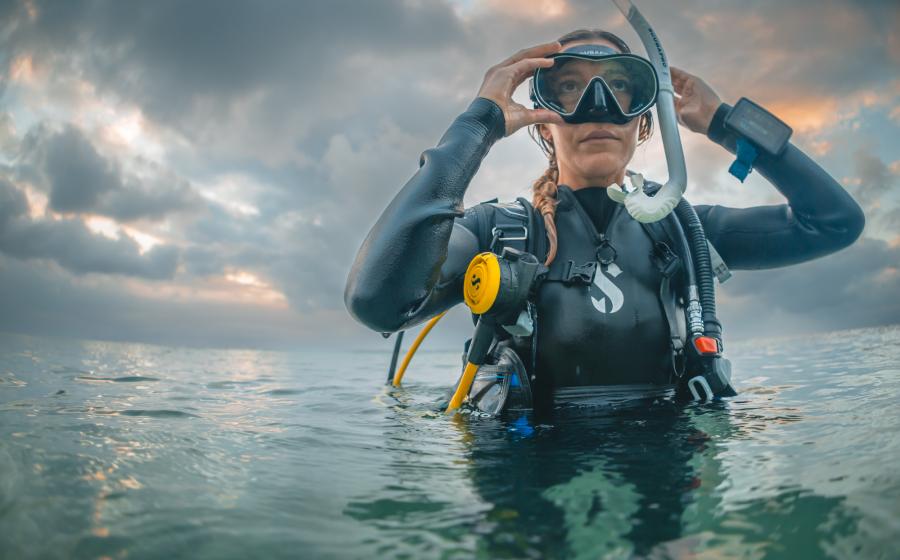Why Divers Should Treat War-Torn Wrecks with Respect
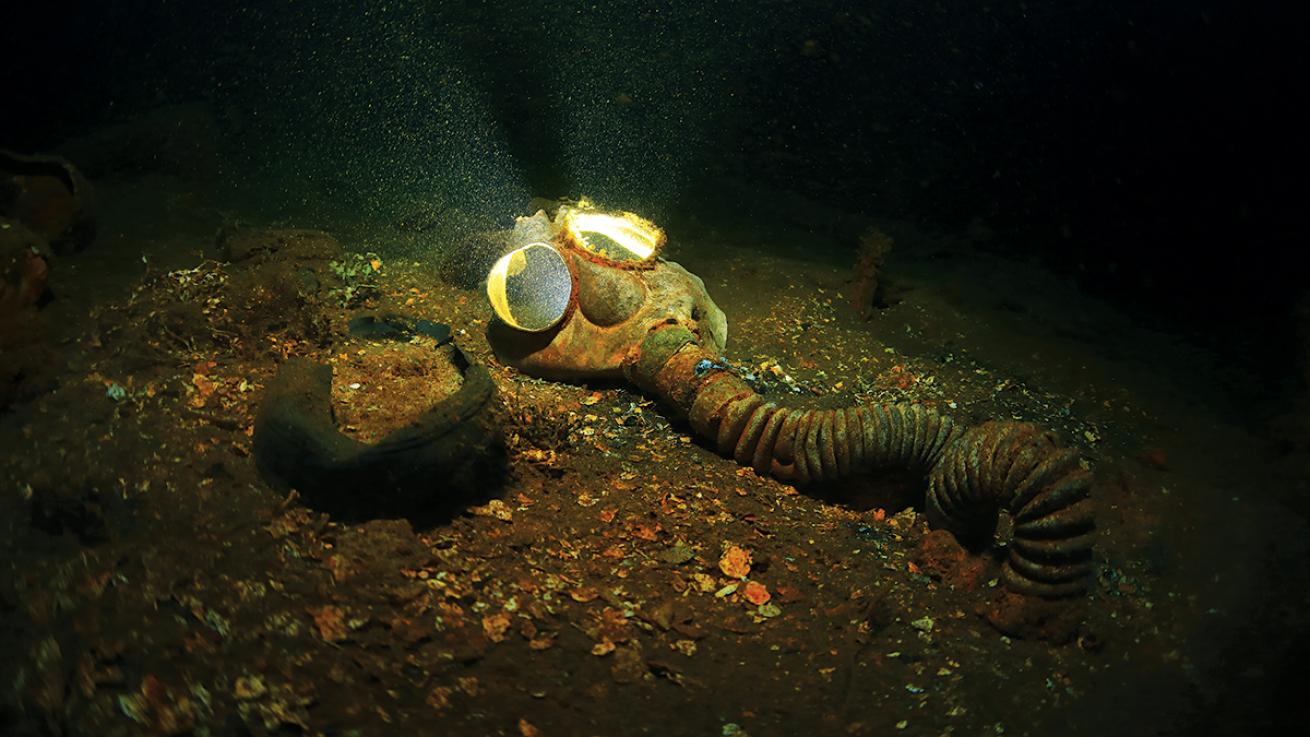
Arturo TelleA gas mask lies inside the steamship Unkai Maru, attacked on the first day of Operation Hailstone in Truk Lagoon (below).
Wreck diving carries us back in time. We look for clues on wrecks to foster our imagination, and read history books to help us understand what it was like for those who lived and died on these ill-fated ships.
Tales of tragedy are often what we discover. Every ship has a story, and most wreck divers want to hear it. By exploring the past, we reflect on our history, and maybe understand it a little better.
This is what I experience exploring the World War II wrecks of Chuuk, a wreck-diving mecca I call home, and my place of business for the better part of 10 years as a captain of the Truk-based Odyssey liveaboard. Many who served on Japanese ships here during WWII died in combat aboard vessels that are now the famed shipwrecks of Truk Lagoon, their remains still scattered around the wrecks.
These dive sites are war graves, a fact apparently unappreciated by many divers. Regardless of what side they fought on, these were men with loved ones at home, who were doing their job and what they thought was best for their country, for which they paid the ultimate price. Knowing that, I cannot judge them, nor hold any animosity toward the deceased.
Years ago, I was proudly showing some of my underwater images to a Japanese diver during her Chuuk vacation. She spoke little English but displayed wide-eyed approval while viewing my shots. That is, until I came to a photo of a skull, the remains of a Japanese sailor who died on one of these ships. The woman’s expression changed from excited to somber. What I thought was thrilling, she found disturbing, and it became clear to me why.
Her disposition toward me remained respectful, not judgmental. But she made a point to show me with her gestures of prayer that she was mourning the loss of this man she had never known, the same way that anyone with an inkling of patriotism might if they were to gaze upon the remains of someone lost in the service of their country.
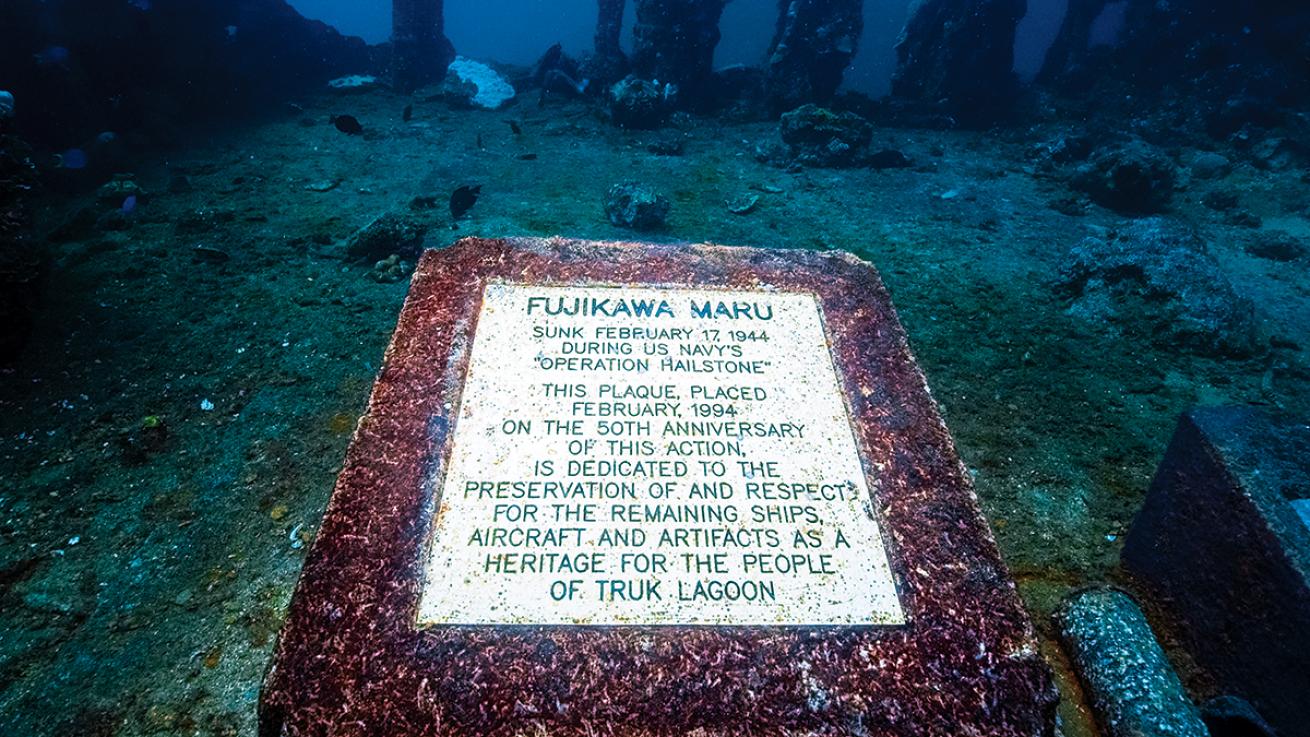
Andre Seale/SeaPics.comA plaque placed on Fujikawa Maru on the 50th anniversary of its sinking asks for respect for the site.
I understood that it was time for me to begin showing more respect. I would never take photos of the remains of U.S. servicemen; why would I of anyone else? From that moment forward, I ceased to display images of human remains.
I consider the wrecks of Truk Lagoon to be war graves. However, the local government does not recognize the Japanese wrecks as such; there are no laws preventing divers from disturbing these remains.
On two occasions in the 1980s, Japan was permitted by the state of Chuuk to recover the remains of many Japanese who died at Truk Lagoon. The bones were gathered by divers and cremated in a pyre near the town dock while a Shinto ceremony was conducted. The Japanese sought permission for further expeditions to recover more remains but were denied.
For myself, I have made it a practice not to inform divers where they can find bones, and ask them to think twice about disturbing such remains when they come across them. In the absence of any regulation, it’s up to individual divers to decide whether they should regard these wrecks as graves, and whether to offer respect not only to the deceased, but also to those who still mourn their loss today.
In Memoriam
All U.S. and British battle wrecks are considered war graves; disturbing them within U.S. and British territorial waters is illegal.
German military wrecks in U.S. waters — such as U-boats — also are designated war graves; Japanese ships have no official U.S. designation.
If you’re unsure of regulations where you are diving, treat all war graves and any remains you encounter anywhere as if they were servicemen from your own country.


